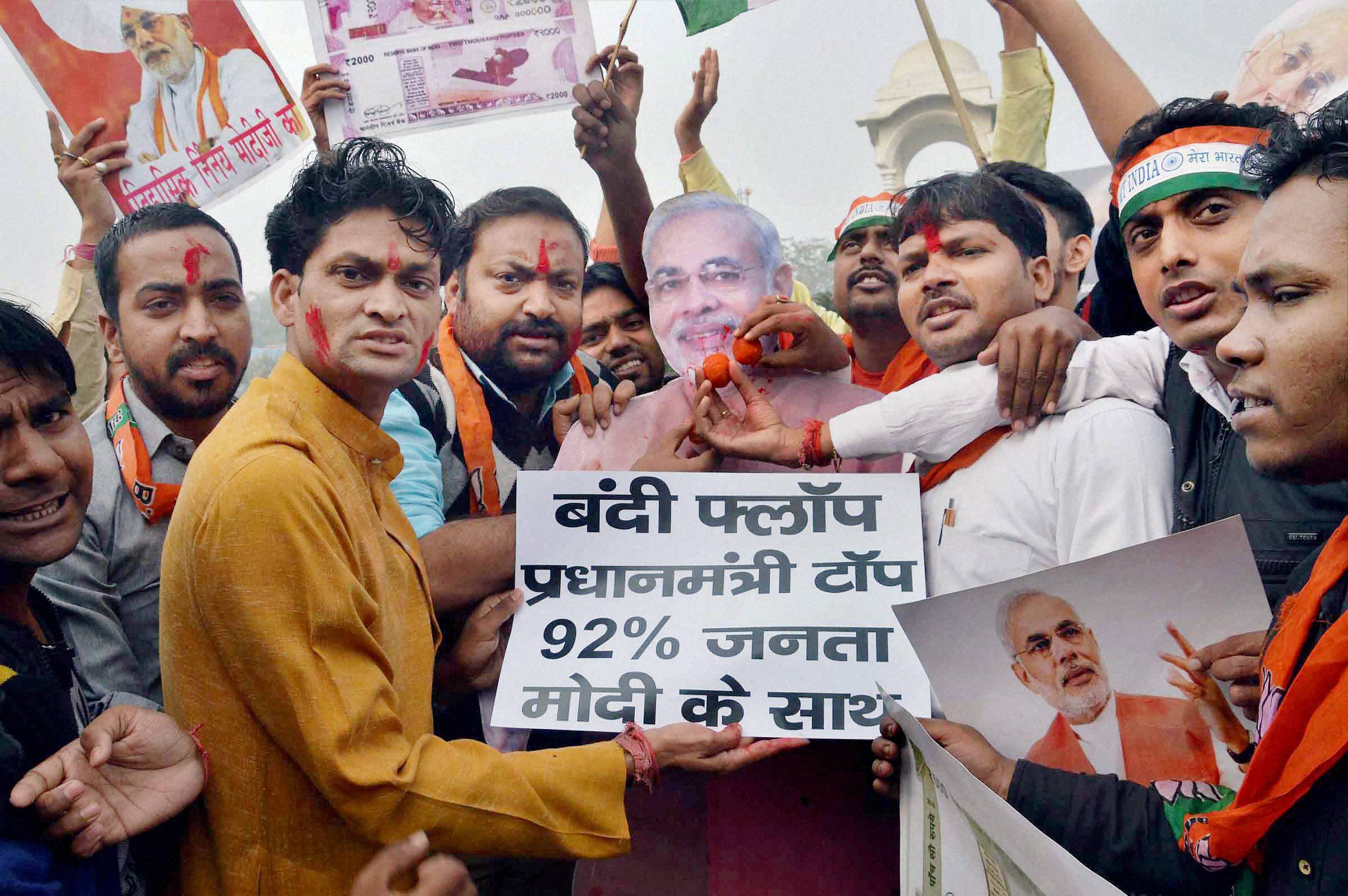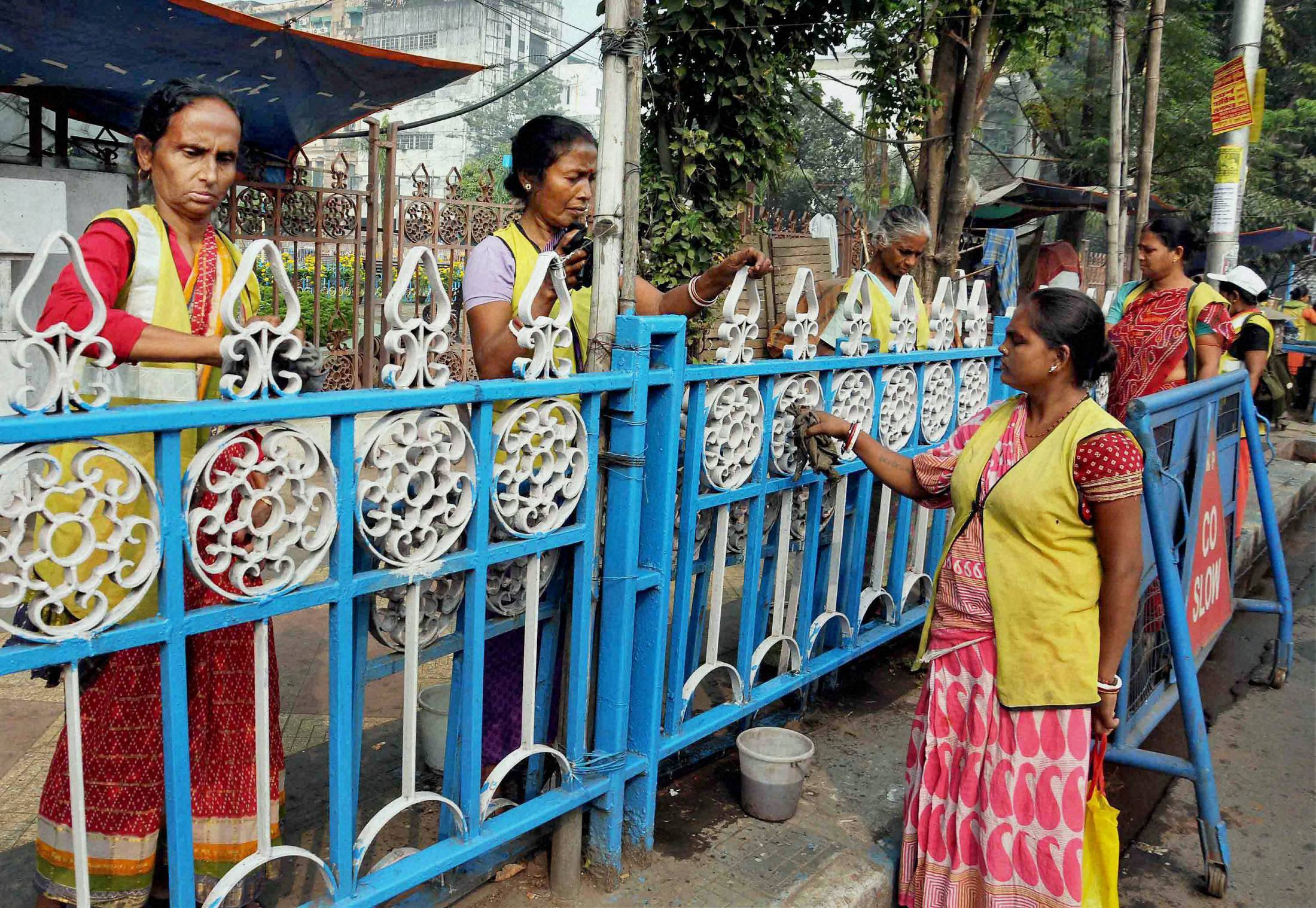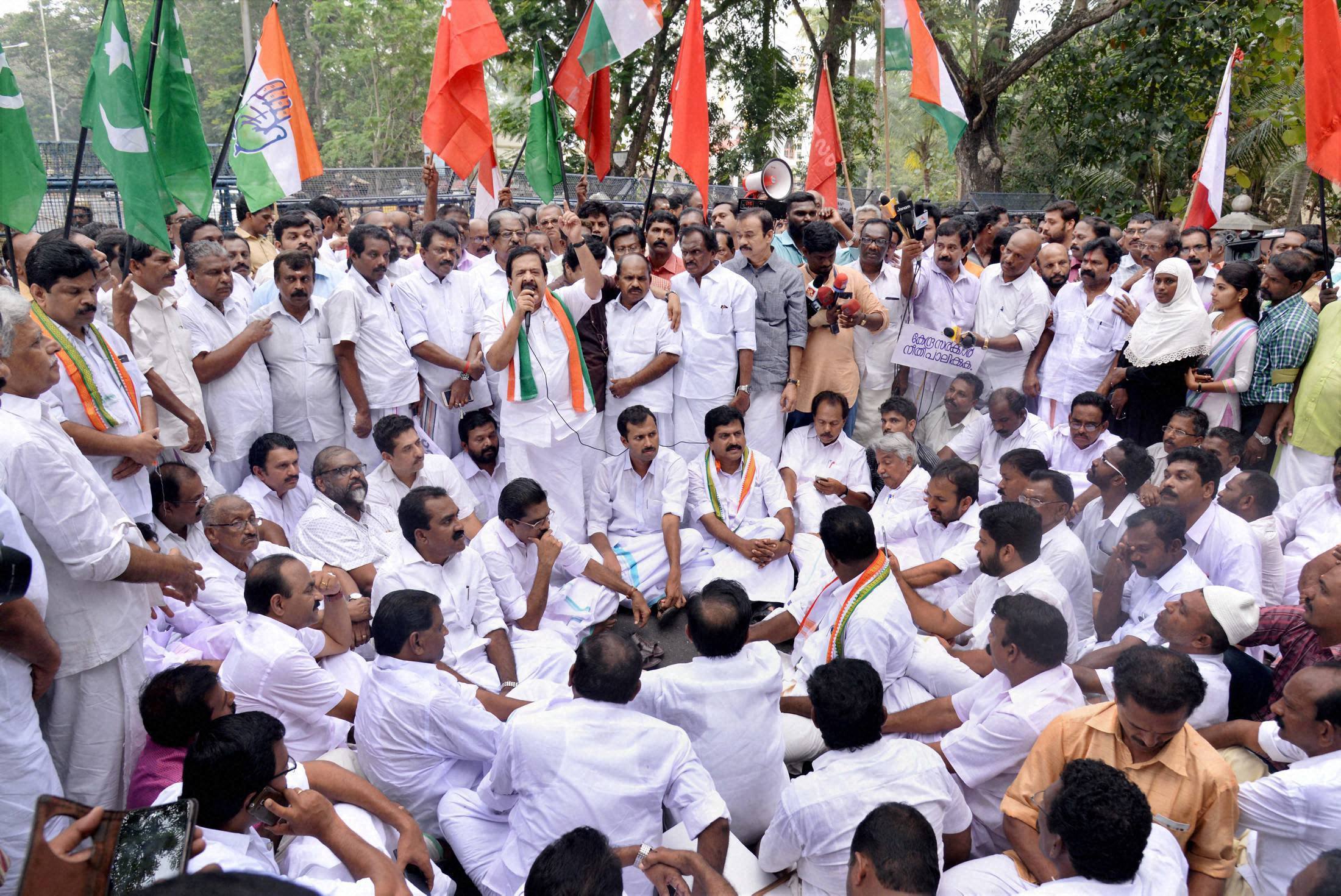Normal life was hit in some parts of the country on Monday as non-BJP parties took to the streets to protest demonetisation. The BJP termed it a “flop show”.
While the Left constituents called a 12-hour bandh, other parties including Congress and TMC only held protests. JD(U) and BJD did not participate in the protests.
In Tamil Nadu, hundreds of workers from various Opposition parties, led by DMK, were arrested when they staged protests across the state. The parties slammed the ban on Rs 500 and Rs 1,000 notes as a “war on rural poor” that was causing “hardship” to the common man.

DMK Treasurer M K Stalin, state secretaries of CPI-M and CPI G Ramakrishnan and R Mutharasan respectively, along with a several workers of their parties were among those arrested when they staged protests separately in front of central government offices and nationalised banks, police said.
In Kerala, the ruling CPI(M)-led LDF sponsored 12-hour strike against demonetisation evoked a near total response. Shops and business establishments downed shutters and state-run KSRTC and private buses kept off the roads across the state in response to the strike which began at 6am. The Left Democratic Front took out marches at various places with state CPI-M Secretary Kodiyeri Balakrishnan here attacking the Centre for causing ‘hardship’ to the people in the name of its crackdown on black money.
In Uttarakhand, Congress held demonstrations at all the district headquarters in protest against demonetisation issue, as part of the ‘Jan Aakrosh Divas’ observed across the country. It was business as usual on the streets of the city which wore a busy look with the shutters of all shops open and markets full of customers. Traffic was normal on the streets of Dehradun, Rishikesh and Haridwar. All educational institutions throughout Uttarakhand were also open.
In Karnataka, the protest affected the functioning of both the Houses of Karnataka Legislature, now in a 10-day winter session at Belagavi, as they did not sit on Monday in line with the decision taken by the Business Advisory Committee (BAC). Life in Bengaluru and elsewhere remained normal with commercial establishments, educational institutions, banks and private offices working as usual and public transport and Metro maintaining their regular services.

In West Bengal, the state-wide 12-hour strike called by Left parties failed to evoke much response. Government and private buses, trams and other private vehicles were seen plying on the road while most of the shops and markets were open. The strike call by the Left Front has been opposed by the ruling TMC. Train services of Eastern Railway in Sealdah and Howrah sections, besides Metro Rail services were also normal.
Normal life was hit in Left-ruled Tripura with schools, colleges and shops remaining closed and vehicles staying off the roads. However, banks were open as they were out of the purview of the bandh.

In Maharashtra, Congress and NCP hit the streets though normal life remained unaffected with no disruption to public transport or functioning of offices and businesses in Mumbai and other parts.
In Uttar Pradesh, the opposition-sponsored ‘Jan Aakrosh Diwas’ failed to evoke response with offices and business establishments doing normal work and vehicles plying as usual. No major party in the state supported the protest, while Congress and AAP workers held separate programmes against the Centre’s note ban decision.
Meanwhile, for the 8th straight day, Opposition stalled Parliament over demonetisation today, even as the government sought to break the logjam by promising that Prime Minister Narendra Modi will speak on the issue if a debate takes place. Functioning of both the Rajya Sabha and the Lok Sabha was disrupted, leading to their premature adjournment for the day.
In the Lok Sabha, a number of Opposition leaders, including Mallikarjun Kharge (Cong), Sudip Bandhopadhyay (TMC) and Mulayam Singh Yadav (SP), pressed for acceptance of their demand for an Adjournment Motion and debate under a rule that entails voting. They also demanded presence of the Prime Minister during the debate.
In response, Home Minister Rajnath Singh said the Prime Minister will speak on demonetisation if the Opposition wanted but the debate should take place, for which the rule will be decided by the Speaker. Singh said it was clear that nobody was questioning the government’s intentions over demonetisation or imputing any malafide.
(All images sourced from PTI unless specified otherwise)

















